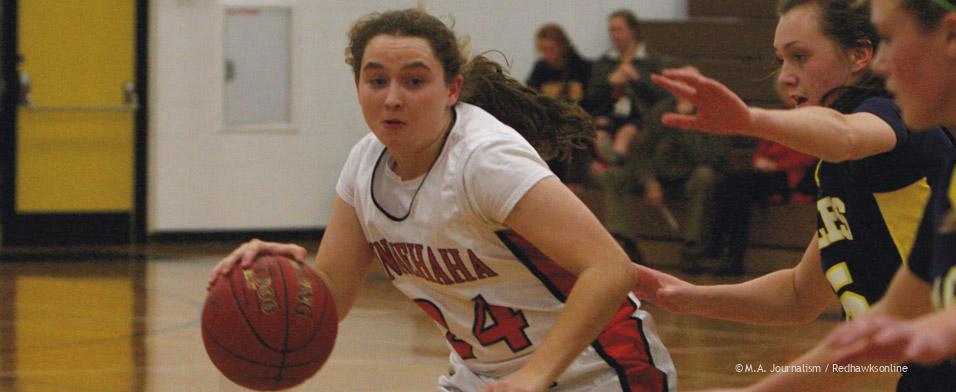Desired by the body, but easily malleable, sleep shouldn’t be a variable for dedicated athletes
Athletes always want a leg up. They want the best equipment. They push themselves to train at their best. They are willing to push their bodies to the limit and train it perfectly, but an important part of training has seemed to get lost somewhere along the way.
Lack of sleep takes away all the little advantages these athletes have worked so hard for.
High school students aren’t getting enough sleep, especially student athletes. By not getting enough sleep, studies show, they’re suffering from more injuries and are performing worse. Why is it so important?
All high school students should be getting enough sleep but athletes need it even more.
The National Sleep Foundation said that seven to nine hours of sleep can be satisfying for a high school student, but for an athlete this is even more important.
“It is recommended at least eight hours a night,” said Minnehaha’s athletic trainer Sonya Abadeer. “When your body is resting it has more time to heal which can help with less injuries. If you are going to push your body to a higher level and you’re not letting it recover, then you are not going to have optimal performance, but it’s also going to put you at risk for injury.”
What is being done to educate athletes about the importance of sleep?
The boys’ hockey team is told to go home right after hockey and do their homework and not to stay up all night on social media. For both girls’ and boys’ basketball, they are encouraged to get more sleep on game nights, but it is not stressed on a day to day basis; and nordic skiers are told to get eight hours a sleep a night.
“I have also required a midnight curfew after the Sno Daze dance because it’s the weekend before our Section race,” said nordic skiing coach Anne Rykken. “Anyone not following it jeopardizes their place on the team.”
Rykken explained how she stresses sleep often on her team but does not educate her athletes on the effect. This is part of the problem.
Student athletes have different priorities and by not telling them how sleep can affect their performance and their chance of getting an injury, these students will be a lot less likely to follow through with getting more sleep.
“With a lot of people taking AP classes on the team, homework makes it hard to get to sleep early especially after practice,” said sophomore basketball captain Sarah Kaminski.
Though student athletes are busy with the option of many difficult courses at Minnehaha, getting more sleep also helps them perform better academically by being able to focus better and have better memory and cognitive function. This is why it is important for students to look at getting a good night sleep regularly as a higher priority.
If teenage athletes get at least eight hours of sleep they are 68 percent less likely to get an injury than someone who sleeps less regularly, according to a study done at the Harvard-Westlake School in Studio City, Calif., by Matthew Milewski, MD.
Injuries are one of the worst things that can happen to an athlete and can ruin the rest of their career.
Not only will athletes have a less likely chance of getting injured, but sleep can also help them perform better as the athletes they are.
According to the online journal Sleep, a source for abstracts of articles published in the official journal of the American Sleep Disorders Association, there was a study done with the Stanford basketball team during their season that measured different levels of sleep and how the affected their performance, moods and attentiveness.
First they studied the base-line of six to seven hours of sleep a night and collected the results. Then they did the same for the second round with a minimum of 10 hours per night.
The players speed increased by five percent and their accuracy with their free throws increased by nine percent. These student athletes were also happier and their daytime sleepiness was significantly lower.
Why is sleep still not a priority especially for athletes? High school students may make excuses, whether it is “too much homework” or “not enough time after practice”.
In the Sleep study, these students, Division I athletes, were finding time outside of their rigorous college schedule to sleep 10 hours a night.
Educating young athletes is the first step. Giving high school athletes a reason to make sleep a priority will change the results. High school athletes also need to hold themselves accountable for time management.
With fewer injuries and better performance as well as academic benefits, sleep should be priority.

